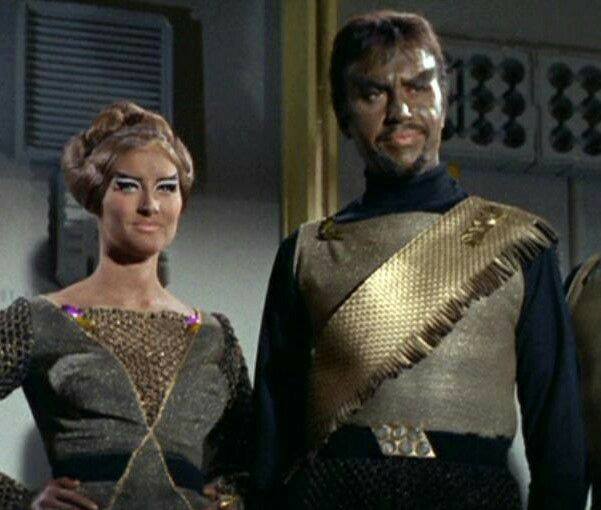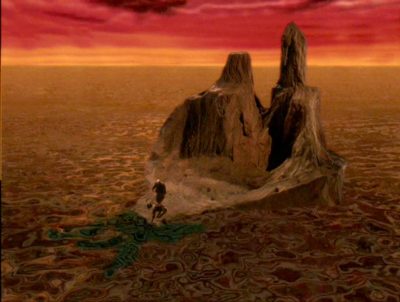Recently I came across a stack of The Best of Trek paperbacks collecting articles and essays from the Trek fanzine that ran from the 70s to 90s. As Maria Jose and John Tenuto write at StarTrek.com, the series “remains a significant resource for charting the fan experiences” of the era.
I’ll be sharing some interesting excerpts here as I read through them, starting with some quotes from a particularly interesting piece in book 1 (1974) by Leslie Thompson called “The Klingons: Their History and Empire.” Thompson refers to this essay as an example of “‘speculative faction,’ in which a fictional hypothesis is woven around a set of known or proven facts in a way which complements and expands those facts.
On Klingon government, Thompson writes:
Klingon government is pretty much like the communistic system on Earth. Rule is by the council of thirteen men, whose order and influence is in direct proportion to their power in the empire…The average Klingon is considered to be owned by the empire. No matter what his rank (achieved by assassination and treachery), he is basically a “front-line soldier,” and thinks of himself in that way.
So what about Klingon women?
Women on Kazh [an earlier name for the Klingon homeworld] are also educated. They are taught to be scientists, computer technicians, factory laborers, and the like. In other words, the women are given jobs that no self-respecting Klingon male would consider doing. Males want to fight.
I find this clever and amusing – the idea that women in the fictional Klingon empire are still doing the devalued labour, even when that labour would be highly valued in human society. Thompson continues:
Women of Kazh are considered really little more than chattel, owned by whoever is strong enough to keep them. Natural childbirth is a rarity on Kazh, and is actually illegal among the lower orders.
Children are bred in the laboratory at a specific rate. They are raised by the state and educated to a specific design. The concept of family is unknown among the Klingons, along with the inherent weaknesses of family life: love, loyalty and tenderness.
While Thompson’s take didn’t turn out to be exactly how Klingons were interpreted in TNG and beyond, she wasn’t totally off base that gender inequality (or even outright misogyny) would be a thing in the empire. Overall it’s an interesting theory that reads like a creative anti-communist dystopia, and gives us just one snapshot of fan dialogue in the 1970s.









